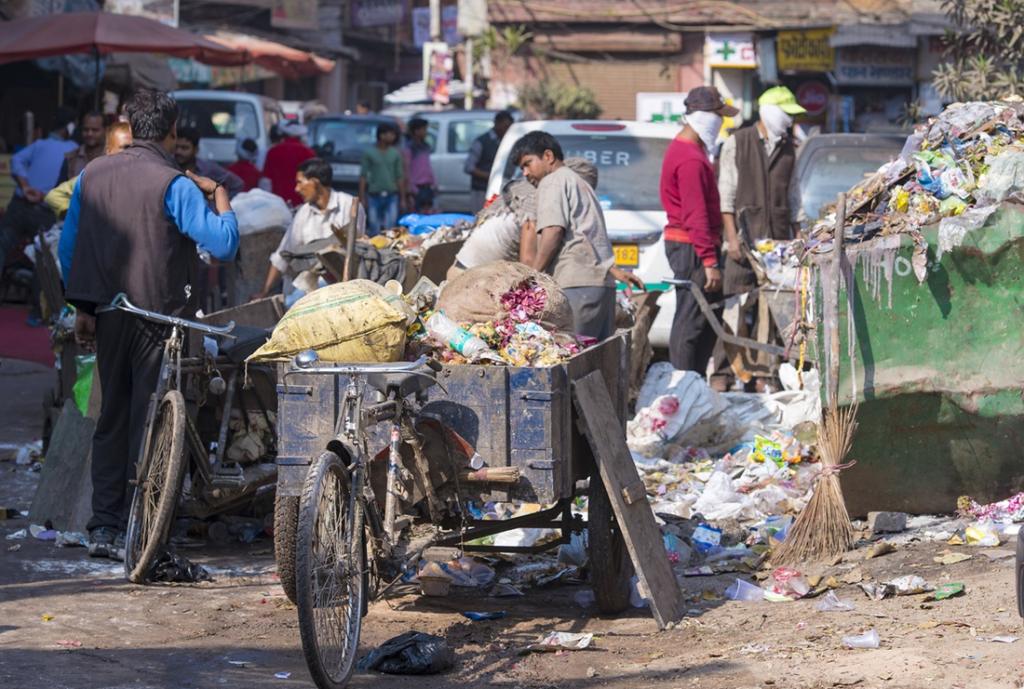

A just transition approach prioritises addressing social and economic impacts associated with transitioning by providing support to affected workers and communities



The concept of ‘just transition’ encompasses a socio-economic framework that aims to navigate the shift away from plastic-dependent industries towards more sustainable alternatives while ensuring equity and inclusivity. This approach prioritises addressing social and economic impacts associated with transitioning, such as job losses and economic disruptions, by providing support to affected workers and communities. It particularly focuses on marginalised or vulnerable groups, including informal waste workers, ensuring they are not disproportionately affected by industry shifts and promoting social justice through inclusive decision-making processes and resource access.
To support workers and communities during this transition, just transition initiatives involve retraining and upskilling programmes to enable workers to pursue employment in emerging green sectors like renewable energy, recycling and sustainable packaging. These investments in alternative industries not only create new job opportunities but also contribute to economic development. The framework also emphasises global cooperation and solidarity, recognising that transitioning away from plastic pollution requires collective action and support among countries and regions.
In practical terms, Parties committed to just transition initiatives aim to promote fair, equitable and inclusive transitions for affected populations, with a special focus on women and vulnerable groups. This includes establishing national coordinating bodies to engage with stakeholders, improving income and livelihood opportunities through workforce training and social programmes tailored to community needs, and incentivising skill development across the plastic value chain. Focus on informal and cooperative workers ensures legal recognition, protection and improved working conditions. These efforts align with broader environmental goals and international efforts to address plastic pollution while fostering social justice and human rights.
The European Union (EU), Pacific Small Island Developing States (PSIDS) and Brazil have proposed higher ambition for just transition provisions. While the EU has proposed promotion of safe working environments, Brazil has proposed including waste pickers and other workers across the life cycle of plastics. PSIDS countries have proposed the inclusion of indigenous people and local communities.
The United States and African group have supported most of the existing provisions. They have expressed support for children, youth and stakeholders, including waste pickers. Algeria did not align with the African group and disagreed on legally recognising, protecting and integrating workers from informal and cooperative settings into the safe plastic value chain.
India and Japan agreed to just transition provisions, but strictly based on national regulations to promote implementation.
Iran advocated for financing, technology transfer and capacity building from developed countries. It also deleted terminologies like ‘vulnerable groups’ and ‘workers’. It disagreed on legally recognising and protecting workers in waste management cooperatives.
To download the whole report, click here.
This is a click to zoom map. View the larger image by clicking on it
We are a voice to you; you have been a support to us. Together we build journalism that is independent, credible and fearless. You can further help us by making a donation. This will mean a lot for our ability to bring you news, perspectives and analysis from the ground so that we can make change together.

Comments are moderated and will be published only after the site moderator’s approval. Please use a genuine email ID and provide your name. Selected comments may also be used in the ‘Letters’ section of the Down To Earth print edition.